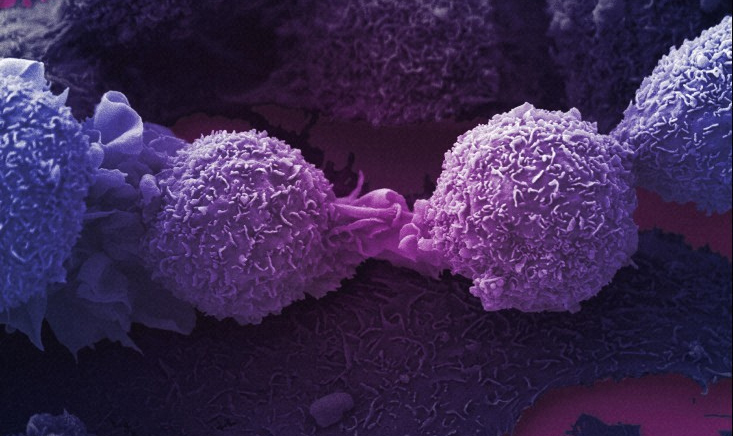The drug discovery company, Astex Pharmaceuticals, has been acquired by the Japanese firm Otsuka Pharmaceutical, in a move which promises to significantly enhance its capacity to develop new therapeutics for cancer. Astex was co-founded by University of Cambridge researchers in 1999.
Astex currently has potential new drugs for leukaemia, prostate, lung and ovarian cancers in clinical trials. The company, which has its research headquarters in Cambridge, is recognised as a world leader in fragment-based drug discovery, a method which it has pioneered since its foundation.
This approach has led to a significant change in how the pharmaceutical industry approaches drug discovery.
Professor Chris Abell
Fragment-based drug discovery is one of the most significant advances in early stage drug discovery in the last 20 years. Professor Sir Tom Blundell from the Department of Biochemistry and Professor Chris Abell from the Department of Chemistry were involved in collaborative research in this are with Dr Harren Jhoti, formerly head of Structural Biology and Bioinformatics at GlaxoWellcome, which later led to the formation of Astex.
Fragment-based drug discovery starts by screening very small chemical fragments using high-throughput x-ray crystallographic methods, together with roboticised data collection, in order to define protein-fragment complexes at high resolution. The founders hypothesised that a library of 300 to 1,000 small fragments could explore chemical space more efficiently than a million-compound library of larger drug-like molecules.
Once the positions of fragments bound to the protein have been determined by x-ray crystallography, knowledge of their positions and the structure of the targets are used to iteratively elaborate them into more potent molecules.
“This approach has led to a significant change in how the pharmaceutical industry approaches drug discovery,” said Professor Abell. “It keeps the overall complexity and molecular weight of each drug candidate low – key factors in successful drug development.”
Professors Abell and Blundell, along with Dr Harren Jhoti from GlaxoSmithKline, co-founded Astex Technology (later Astex Therapeutics) in 1999, with partial funding from the University seed funds. In 2011, Astex Therapeutics merged with SuperGen Inc, to form Astex Pharmaceuticals. The deal with Otsuka, worth $886 million, will further enhance the company’s ability to develop new cancer treatments.
“This transaction recognises the meaningful assets our employees have created,” said Dr James Manuso, Chairman and Chief Executive Officer of Astex Pharmaceuticals. “Most importantly, however, patients will benefit substantially from the larger drug discovery, development and commercialisation platform a combined Otsuka and Astex will deliver.”
Dr Taro Iwamoto, Otsuka Pharmaceutical’s President and Representative Director, remarked, “I hope that this acquisition of Astex will strengthen not only our cancer portfolio but also our drug discovery research in the central nervous system field, through the acquisition of Astex’s fragment-based drug design technology at its Cambridge research headquarters and its California clinical oncology R&D department.”
In addition to its various drug candidates, Astex has five partner-funded programs which are being developed by Novartis, AstraZeneca, Janssen and through a clinical development partnership with Cancer Research UK.
Story adapted from Astex press release
Photo credit: Lung cancer cells, from Wellcome Images via Flickr
Tags: astex, biochemistry, cancer, chemistry, chris abell, james manuso, otsuka, therapeutics, tom blundell











